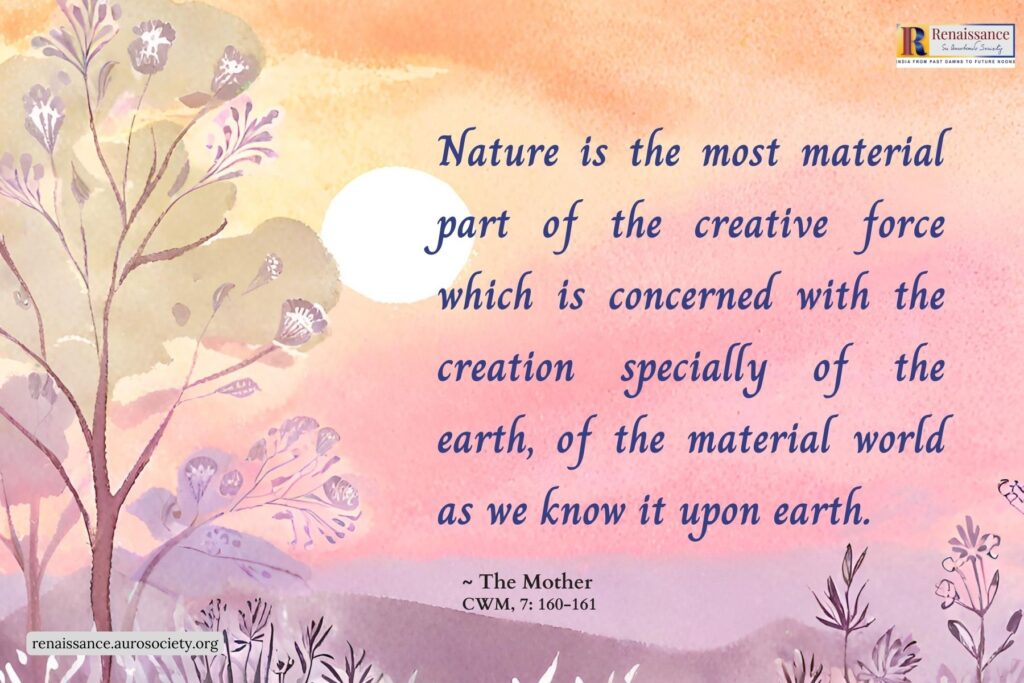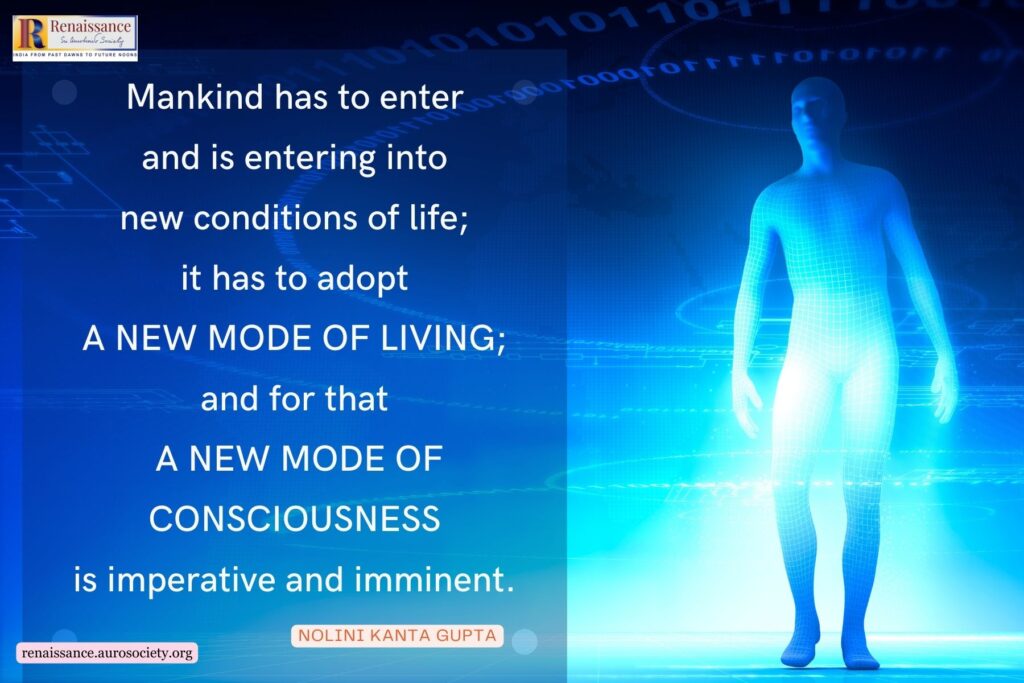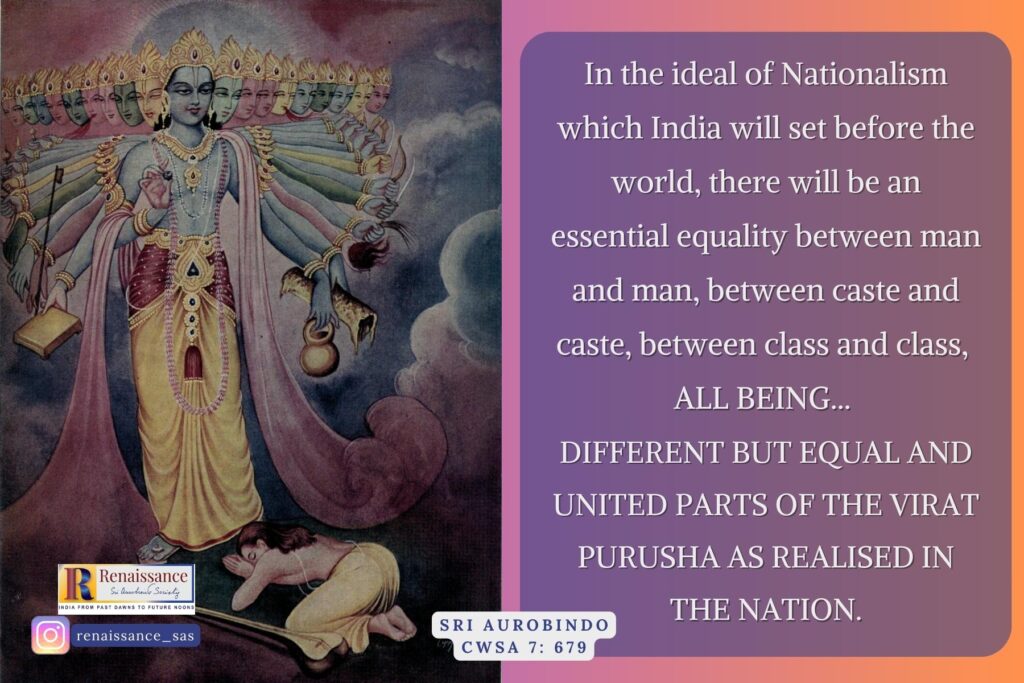Editor’s note: We present here a letter of Sri Aurobindo through which he helps us understand that truth is never one-sided or simplistic. If there is a truth of equality, there is also another truth of hierarchy. All souls are in essence not only equal but One, yet there is also the truth of differentiation and Multiplicity which means that each soul evolves at its own pace.
Written in response to a disciple’s query about a particular statement of Gandhi, this letter strongly emphasises the need to develop a deeper and wider understanding of truth that is beyond mental-moral-ethical ideals. We also get a glimpse of a significant difference between the Christian or Semitic and the Hindu understanding of virtues or qualities, particularly Humility, which are considered important from a spiritual point of view.
The particular statement appears in Gandhi’s “Address to Congress Volunteers” dated December 21, 1936. It can be found in Volume 70 of The Complete Works of M.K. Gandhi, pp. 202-203. Relevant portions of the address are quoted at the end of Sri Aurobindo’s letter.

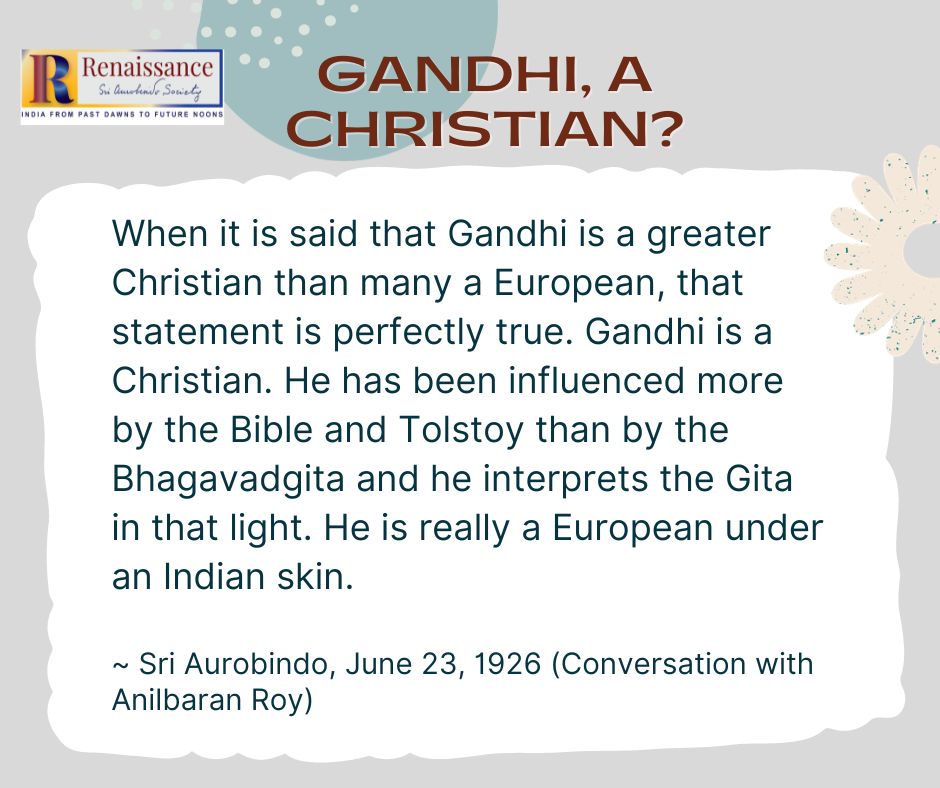
DISCIPLE: Mahatma Gandhi is reported to have said: “To be born as a ‘Bhangi’ was the result of great puṇya in previous birth. He [Gandhi] did not know what qualifications determined the birth of one man as Bhangi and another as Brahmin, but from the point of view of benefit to society the one was no whit lower than the other.” This seems like nonsense to me. How can he say that through puṇya (righteous acts) in previous births people go to a life in the lowest order of human society?
SRI AUROBINDO: The view taken by the Mahatma in these matters [of caste] is Christian rather than Hindu—for the Christian, self-abasement, humility, the acceptance of a low status to serve humanity or the Divine are things which are highly spiritual and the noblest privilege of the soul. This view does not admit any hierarchy of castes; the Mahatma accepts castes but on the basis that all are equal before the Divine; a Bhangi doing his dharma is as good as the Brahmin doing his, there is division of function but no hierarchy of functions.
That is one view of things and the hierarchic view is another, both having a standpoint and logic of their own which the mind takes as wholly valid but which only corresponds to a part of the reality. All kinds of work are equal before the Divine and all men have the same Brahman within them, is one truth, but that development is not equal in all is another.
The idea that it needs special punya to be born as a Bhangi is of course one of those forceful exaggerations of an idea which are common with the Mahatma and impress greatly the mind of his hearers. The idea behind is that his function is an indispensable service to the society, quite as much as the Brahmin’s, but that being disagreeable it would need a special moral heroism to choose it voluntarily and he thinks as if the soul freely chose it as such a heroic service and as a reward of righteous acts—that is hardly likely.
The service of the scavenger is indispensable under certain conditions of society, it is one of those primary necessities without which society can hardly exist and the cultural development of which the Brahmin life is part could not have taken place. But obviously the cultural development is more valuable than the service of the physical needs for the progress of humanity as opposed to its first static condition and that development can even lead to the minimising and perhaps the eventual disappearance by scientific inventions of the need for the functions of the scavenger.
But that I suppose the Mahatma would not approve of as it is machinery and a departure from the simple life. In any case it is not true that the Bhangi life is superior to the Brahmin life and the reward of especial righteousness. On the other hand the traditional conception that a man is superior to others because he is born a Brahmin is not rational or justifiable. A spiritual or cultured man of Pariah birth is superior in the divine values to an unspiritual and worldly-minded or a crude and uncultured Brahmin. Birth counts, but the basic value is in the man himself, the soul behind, and the degree to which it manifests itself in his nature.
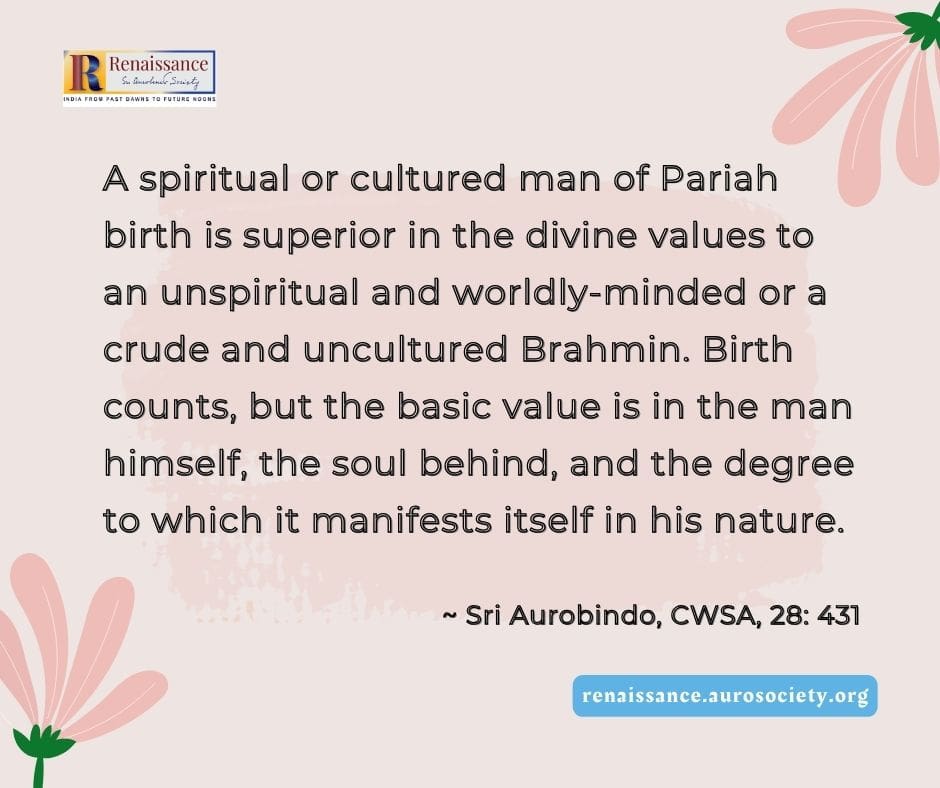
Selections from Gandhi’s “Address to Congress Volunteers”, December 21, 1936
Speaking in quiet persuasive tones, Gandhiji dwelt at length on what he described as the science of Bhangis’ work. He started by pointing out that he had begun his work as a Bhangi long ago in South Africa. To be born as a ‘Bhangi’ was the result of great punya in previous birth. He did not know what qualifications determined the birth of one man as Bhangi and another as Brahmin, but from the point of view of benefit to society the one was no whit lower than the other. Those who considered Bhangis’ work as mean did so in their ignorance.
Every mother acted as a Bhangi for her children; every doctor often acted as a Bhangi for his patients. But the doctors received fat fees, while the Bhangi who was equally working for the benefit of society got very little in comparison. Society regarded the work of Bhangis as demeaning, while the wholesome work done by the doctors was considered ennobling. One who could not and did not do the work of the Bhangi in the proper spirit and in a thorough fashion and with pride in it could never be expected to do any other item of national service to the country effectively. . . One could go without food for two or three days and could do so without serious trouble but no one could do without the Bhangi’s services for that length of time or even less. . .
His conception of Ramarajya, which he said, was certain to come to India, was a dispensation under which there would be no distinction between a Brahmin and a Bhangi or even a Brahmin and a Maharaja. They would be treated from the point of view of the usefulness to society of their respective work. Re-emphasizing the importance of Bhangi in the scheme of things, Gandhiji declared that swaraj would come to India not through the Congress parliamentarians in the legislatures, but through efficient and conscientious discharge of their work by Bhangis and other workers without looking for reward or praise in municipal and public addresses.

~ Design: Beloo Mehra

